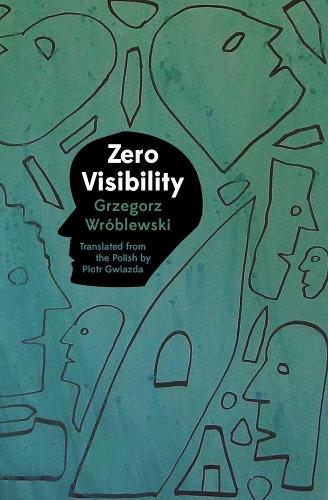
Zero Visibility
(Paperback)
Publishing Details
Zero Visibility
By (Author) Grzegorz Wrblewski
Translated by Piotr Gwiazda
Phoneme
Phoneme
9th May 2017
United States
Classifications
General
Non Fiction
821.92
Physical Properties
Paperback
136
Width 133mm, Height 209mm
Description
This collection of poems from one of Poland's major contemporary writers, Grzegorz Wrblewski, demonstrates his characteristic virtues: anthropological focus, objectivist detachment (though not without hallucinatory interference), minimalistic precision. But it also signals the presence of new elements. One of them is an extensive reliance on found language, the preferred mode of Anglophone conceptual writers, here acquiring a distinctly Eastern European flavor. Another is his candor, which teases readers with glimpses of his most private feelings. Bleak and terse, Wrblewski subjects his material to almost clinical treatment in order to better dissect and so understand the series of events that we call reality.
Reviews
"Grim, glancingly beautiful, always necessary..." --Joshua Clover "The true poetic chronicler of our twenty-first century diaspora in all its absurdities and anxieties." --Marjorie Perloff "Prolonged nudity as an enhanced interrogation technique. The Juice Probe that looks for life on one of Jupiter's moons. A wish to be reincarnated as a crab. The memory of something velvety. This is the realm of melancholic hilarity that Grzegorz Wroblewski's Zero Visibility occupies: at moments hallucinatory, at other moments rooted in hard reality. Found language is collaged with the imaginative workings of a brilliant mind, and the result is revelation, both funny and tragic. 'How strange to be back / on this planet.'" --Sharon Mesmer "This brilliant collection offers an elegantly translated Vergil for the conditions of zero visibility that seem inevitable as we try to make sense of the diverse threads constituting our lives. Disjunction for Wroblewski is the new condition for conjunction. It elicits 'enhanced interrogation techniques' because the lyric imagination seems at first grossly overmatched in its struggles to make sense of the pressures of reality. But the poems ask if we have been looking for conjunction in the wrong place, in how we produce names for the real rather than how our tones of voice and sheer desperation about making sense can be deployed in poetry to define a hope nowhere in evidence except in how we play on our ways of staging what is 'unbearable' about life with remarkably complex humor that is bracingly dry and intricately satisfying. 'Signs' offers a condensed example: 'A dead crab and white seagulls. / Everything balances out perfectly, / My future is a mystery.' This poem moves from signs in the form of images to the reading of signs that offers an optimistic figure of the relation of life to death to the individual speaker's sheer puzzlement about how he fits in either world--the one pictured and the one evoked in what seems in retrospect wistfully optimistic language effectively disjoining attention from interpretation." --Charles Altieri
Author Bio
Grzegorz Wroblewski was born in 1962 in Gdansk and grew up in Warsaw. Since 1985 he has been living in Copenhagen. He is the author of many books of poetry, drama, and other writings. As a visual artist, he has exhibited his paintings in various galleries in Denmark, Germany, England, and Poland. English translations of his work are available in Our Flying Objects (trans. Joel Leonard Katz, Rod Mengham, Malcolm Sinclair, Adam Zdrodowski, Equipage, 2007), A Marzipan Factory (trans. Adam Zdrodowski, Otoliths, 2010), Kopenhaga (trans. Piotr Gwiazda, Zephyr Press, 2013), and Let's Go Back to the Mainland (trans. Agnieszka Pokojska, Cervena Barva Press, 2014). Piotr Gwiazda's translation of Grzegorz Wroblewski's Kopenhaga appeared from Zephyr Press in 2013. He has also published three books of poetry, Gagarin Street (Washington Writers' Publishing House, 2005), Messages (Pond Road Press, 2012), and Aspects of Strangers (Moria Books, 2015), as well as two critical studies, James Merrill and W.H. Auden (Palgrave Macmillan, 2007) and US Poetry in the Age of Empire, 1979-2012 (Palgrave Macmillan, 2014). He teaches at the University of Maryland, Baltimore County.
